This article explores the antiviral properties of olive leaf extract, highlighting its significant benefits, mechanisms of action, and practical applications in health and wellness.
What is Olive Leaf Extract?
Olive leaf extract is obtained from the leaves of the olive tree (Olea europaea) and has been recognized for its numerous health benefits. Among these, its potential antiviral properties have gained considerable attention in recent years.
Historical Uses of Olive Leaf Extract
For centuries, olive leaf extract has been a staple in traditional medicine. Its historical significance underscores its long-standing reputation as a natural remedy for various ailments, including viral infections.
- Traditional Medicine Practices: Olive leaf extract has been incorporated into herbal remedies across many cultures, providing insight into its effectiveness and cultural relevance in treating illnesses.
- Ancient Egyptian Applications: Ancient Egyptians valued olive leaves for their healing properties, highlighting the extract’s historical significance in traditional healing practices.
- Greek and Roman Usage: The Greeks and Romans recognized the medicinal value of olive leaf extract, often using it to promote health and longevity.
Modern Research on Antiviral Properties
Recent studies have started to uncover the scientific basis for the antiviral effects of olive leaf extract, showcasing its potential as a natural alternative in modern medicine.
Mechanisms of Action Against Viruses
Understanding how olive leaf extract operates at a molecular level sheds light on its efficacy against various viruses, particularly through its active compounds and their biological effects.
- Key Active Compounds: The primary active compound in olive leaf extract, oleuropein, has been shown to exhibit antiviral properties, revealing its role in combating infections.
- Impact on Viral Replication: Research indicates that olive leaf extract may inhibit viral replication, disrupting the life cycle of viruses and potentially reducing the severity of infections.
Health Benefits Beyond Antiviral Properties
In addition to its antiviral effects, olive leaf extract offers a range of health benefits, making it a valuable addition to a holistic wellness routine.
- Antioxidant Properties: Rich in antioxidants, olive leaf extract helps combat oxidative stress, which is crucial for overall health and disease prevention.
- Anti-Inflammatory Effects: Its anti-inflammatory properties contribute to its health benefits, playing a role in managing chronic inflammatory conditions.
How to Use Olive Leaf Extract
Incorporating olive leaf extract into your health regimen can be beneficial. It is available in various forms, including capsules and tinctures, each with its own pros and cons.
- Recommended Dosages: Understanding appropriate dosages is crucial for safety and efficacy. Current research provides guidelines to help users make informed decisions.
Potential Side Effects and Considerations
While generally safe, it’s essential to be aware of potential side effects and interactions when using olive leaf extract.
- Common Side Effects: Some users may experience mild side effects; being aware of these reactions is important for safe usage.
- Interactions with Medications: Olive leaf extract may interact with certain medications, making it essential to understand these interactions for anyone considering its use alongside conventional treatments.
Conclusion: The Future of Olive Leaf Extract in Antiviral Therapy
As research continues to unveil the benefits of olive leaf extract, its role in antiviral therapy may expand, emphasizing the need for further studies and potential applications in medicine.

What is Olive Leaf Extract?
Understanding the Antiviral Properties of Olive Leaf Extract
This article delves into the antiviral properties of olive leaf extract, exploring its benefits, mechanisms, and practical applications in health and wellness.
Olive leaf extract is a natural product derived from the leaves of the olive tree (Olea europaea). Known for its numerous health benefits, this extract has gained significant attention in recent years, particularly for its potential antiviral properties. The leaves contain a variety of bioactive compounds, with oleuropein being the most prominent, responsible for many of its therapeutic effects.
Historical Uses of Olive Leaf Extract
For centuries, olive leaf extract has been utilized in traditional medicine across various cultures. Its historical significance highlights its long-standing reputation as a natural remedy for a range of ailments, including viral infections.
- Traditional Medicine Practices: In many cultures, olive leaf extract has been employed in herbal remedies, showcasing its potential effectiveness in treating illnesses.
- Ancient Egyptian Applications: Ancient Egyptians used olive leaves for their healing properties, which underscores the extract’s historical significance and its role in traditional healing practices.
- Greek and Roman Usage: The Greeks and Romans recognized the medicinal value of olive leaf extract, often using it to promote health and longevity.
Modern Research on Antiviral Properties
Recent studies have begun to uncover the scientific basis for the antiviral effects of olive leaf extract, showcasing its potential as a natural alternative in modern medicine. Research indicates that the active compounds can interfere with viral replication, which may help in managing infections.
Mechanisms of Action Against Viruses
Understanding how olive leaf extract works at a molecular level provides insight into its efficacy against various viruses. The primary active compound, oleuropein, exhibits significant antiviral properties, disrupting the life cycle of viruses and potentially reducing the severity of infections.
Health Benefits Beyond Antiviral Properties
In addition to its antiviral effects, olive leaf extract offers a range of health benefits, making it a valuable addition to a holistic wellness routine. It is rich in antioxidants, which help combat oxidative stress, and has anti-inflammatory properties that contribute to its overall health benefits.
How to Use Olive Leaf Extract
Incorporating olive leaf extract into your health regimen can be beneficial. It is available in various supplement forms, including capsules and tinctures, each with its pros and cons. Understanding appropriate dosages is crucial for safety and efficacy.
Potential Side Effects and Considerations
While olive leaf extract is generally safe, it’s important to be aware of potential side effects and interactions with medications. Some users may experience mild side effects, and understanding these is essential for anyone considering its use alongside conventional treatments.
Conclusion: The Future of Olive Leaf Extract in Antiviral Therapy
As research continues to unveil the benefits of olive leaf extract, its role in antiviral therapy may expand. Further studies are needed to fully understand its potential applications in modern medicine.
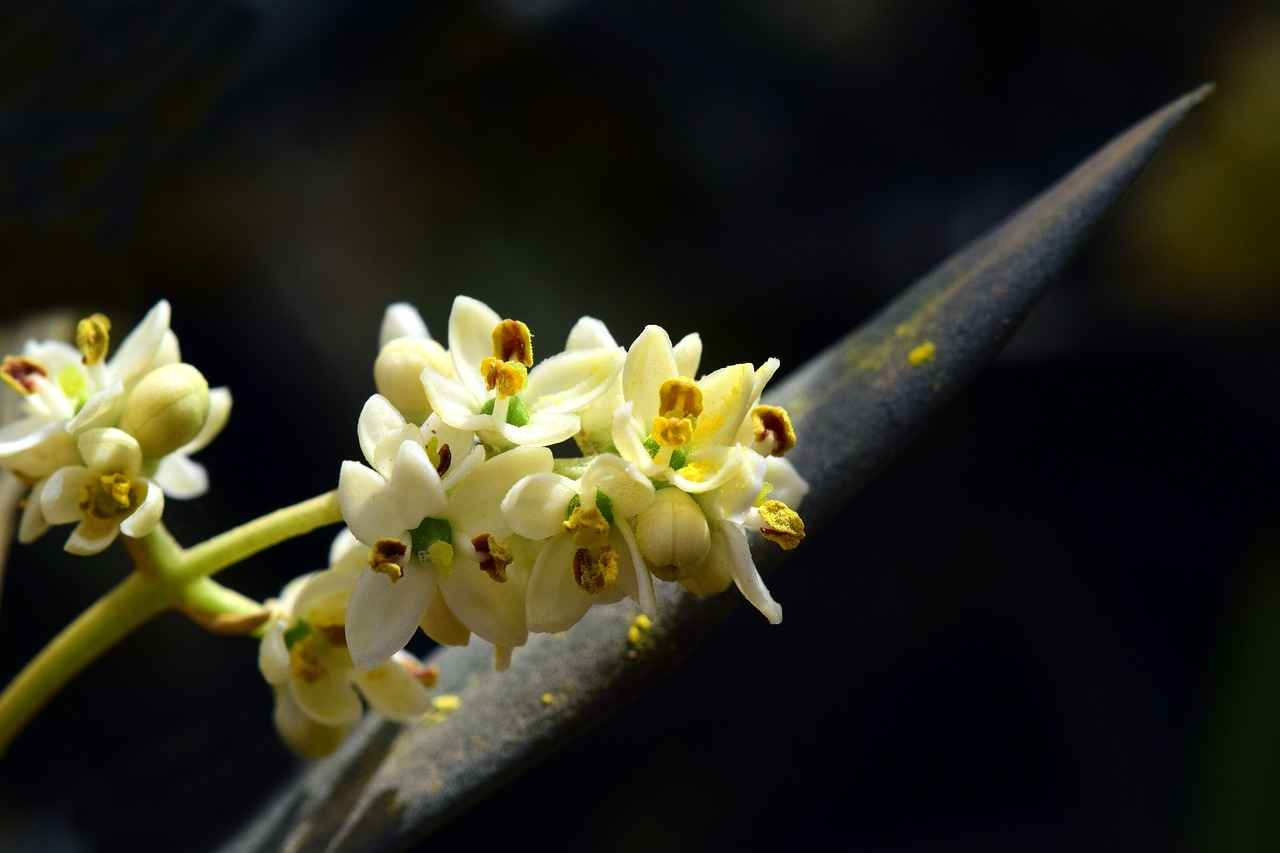
Historical Uses of Olive Leaf Extract
For centuries, olive leaf extract has played a vital role in traditional medicine across various cultures. Its historical significance is not merely anecdotal; it is grounded in a rich tapestry of healing practices that date back thousands of years. This potent extract, derived from the leaves of the olive tree, has earned a reputation as a natural remedy for a variety of ailments, particularly viral infections.
The use of olive leaf extract can be traced back to ancient civilizations. In Ancient Egypt, it was utilized for its healing properties, often incorporated into treatments for infections and other ailments. The Egyptians recognized the health benefits of the olive tree, which symbolized peace and prosperity, and its leaves were often used in various medicinal concoctions.
Similarly, the Greeks and Romans acknowledged the value of olive leaf extract. They believed it promoted health and longevity, frequently using it in herbal remedies to enhance overall well-being. The Greeks, in particular, associated the olive tree with the goddess Athena, further embedding its significance in their culture and healing practices.
In addition to its historical applications, olive leaf extract has been embraced in more recent times for its potential antiviral properties. Modern research has begun to validate the claims made by ancient practitioners, as studies indicate that compounds within the extract may inhibit viral replication and bolster the immune system.
Today, olive leaf extract is gaining popularity in holistic health circles, with many individuals turning to this ancient remedy as a natural alternative for supporting their immune health. Its rich history underscores the enduring belief in its benefits, making it a fascinating subject for both historical and scientific exploration.
In conclusion, the historical uses of olive leaf extract reveal its longstanding reputation as a powerful natural remedy. As research continues to uncover its health benefits, the legacy of this remarkable extract remains relevant in the pursuit of wellness.
Traditional Medicine Practices
have long been a cornerstone of health and wellness in various cultures around the globe. Among these practices, the use of olive leaf extract stands out due to its rich history and numerous purported health benefits. This article explores the significance of olive leaf extract in traditional medicine and its cultural relevance in treating various ailments.
Historically, olive leaf extract has been utilized in herbal remedies for centuries, particularly in regions where the olive tree is native, such as the Mediterranean. Its use can be traced back to ancient civilizations, where it was valued not only for its culinary applications but also for its medicinal properties.
- Ancient Egypt: The ancient Egyptians recognized the healing properties of olive leaves, using them to treat a variety of ailments. Historical texts suggest that they believed olive leaves could enhance overall well-being and help in the treatment of infections.
- Greece and Rome: In ancient Greece and Rome, olive leaf extract was often used to promote health and longevity. The Greeks, in particular, valued olive oil and its leaves for their numerous health benefits, including their potential to boost the immune system.
- Traditional Chinese Medicine: While olive leaf extract is not a staple in traditional Chinese medicine, it has gained popularity in recent years as a natural remedy, reflecting a growing interest in its antiviral properties.
In many cultures, the use of olive leaf extract is not merely a health choice but a cultural practice steeped in tradition. Understanding these practices provides valuable insight into the extract’s potential effectiveness and its role as a natural remedy for various illnesses.
Furthermore, as modern research continues to uncover the scientific basis for the benefits of olive leaf extract, its relevance in both traditional and contemporary health practices is likely to grow. This blend of historical significance and modern validation underscores the importance of olive leaf extract in the realm of herbal medicine.
In conclusion, the traditional use of olive leaf extract across various cultures highlights its enduring legacy as a natural remedy. As interest in herbal medicine continues to rise, olive leaf extract remains a focal point for those seeking alternative health solutions.
Ancient Egyptian Applications
In the realm of traditional medicine, few plants have garnered as much historical significance as the olive tree. Its leaves, particularly, have been utilized for their healing properties across various cultures, especially in ancient Egypt. The ancient Egyptians recognized the value of olive leaves not only for their nutritional benefits but also for their medicinal applications, which have been documented in numerous historical texts.
The use of olive leaves can be traced back to ancient Egyptian civilization, where they were often incorporated into healing rituals and remedies. Ancient healers believed that these leaves possessed unique properties that could aid in the treatment of various ailments, including infections and inflammatory conditions. This underscores the extract’s historical significance and its long-standing role in traditional healing practices.
Moreover, the Egyptians often infused olive leaves in oils and balms, creating potent concoctions used to soothe wounds and promote overall health. The presence of active compounds such as oleuropein in olive leaves is believed to contribute to their effectiveness, as this compound has been shown to exhibit antiviral and anti-inflammatory properties. This historical context not only highlights the ancient Egyptians’ advanced understanding of natural remedies but also serves as a foundation for modern research into the health benefits of olive leaf extract.
As we explore the legacy of olive leaf extract, it becomes evident that its applications in ancient Egypt laid the groundwork for its contemporary use in holistic health practices. The reverence for this humble leaf echoes through time, reminding us of the profound connection between nature and healing.
Greek and Roman Usage
The ancient civilizations of Greece and Rome held the olive tree in high esteem, recognizing not only its culinary value but also its profound medicinal properties. Olive leaf extract, derived from the leaves of the olive tree, was a staple in their health practices, often celebrated for its ability to promote wellness and longevity.
In Greek culture, olive oil and its byproducts were considered sacred. The Greeks used olive leaf extract in various forms, including teas and tinctures, to treat ailments ranging from fevers to infections. This practice was rooted in their belief that nature provides healing solutions, and the olive tree was central to their philosophy.
Similarly, the Romans adopted these practices, integrating olive leaf extract into their medical arsenal. Renowned physicians of the time, like Galen, documented its benefits, citing its effectiveness in enhancing the immune system and combating illnesses. The Romans believed that the extract could help maintain vitality, especially in older adults, thereby validating its importance in their society.
Both cultures also recognized the symbolic significance of the olive tree. It was associated with peace, wisdom, and prosperity. This reverence contributed to the widespread use of olive leaf extract, as it was not merely a remedy but a representation of health and well-being.
Furthermore, the historical significance of olive leaf extract continues to resonate today. Modern research has begun to uncover the scientific basis for its antiviral properties, echoing the ancient wisdom of its use. This connection between past and present highlights the enduring legacy of olive leaf extract as a vital component of health practices.
In conclusion, the Greeks and Romans laid the groundwork for the appreciation of olive leaf extract, recognizing its potential to promote health and longevity. Their historical usage serves as a testament to the extract’s lasting significance in both traditional and modern medicine.
Modern Research on Antiviral Properties
In recent years, there has been a growing interest in the antiviral properties of olive leaf extract, a natural substance derived from the leaves of the olive tree. This surge in research is driven by the need for effective, safe, and natural alternatives to conventional antiviral medications. As scientists delve deeper into the composition of olive leaf extract, they are uncovering its potential to combat various viral infections.
One of the most significant findings in this field is the role of oleuropein, the primary active compound in olive leaf extract. Studies have demonstrated that oleuropein exhibits a range of antiviral activities, including the ability to inhibit the replication of certain viruses. This is particularly relevant in the context of emerging viral threats, where traditional treatments may be insufficient.
Additionally, research has shown that olive leaf extract may enhance the immune response, providing a dual benefit of both preventing viral infections and supporting the body’s natural defenses. By modulating immune function, olive leaf extract can potentially reduce the severity and duration of viral illnesses.
| Active Compound | Antiviral Effect |
|---|---|
| Oleuropein | Inhibits viral replication |
| Hydroxytyrosol | Enhances immune response |
Furthermore, the scientific community is exploring the mechanisms through which olive leaf extract exerts its antiviral effects. Research indicates that it may interfere with the virus’s ability to enter host cells, thereby preventing infection from taking hold. This mechanism highlights the extract’s potential as a preventative measure against viral diseases.
In conclusion, the ongoing research into the antiviral properties of olive leaf extract reveals promising avenues for its use in modern medicine. As studies continue to validate its efficacy, olive leaf extract may emerge as a valuable component in the fight against viral infections, offering a natural alternative to synthetic antiviral drugs.
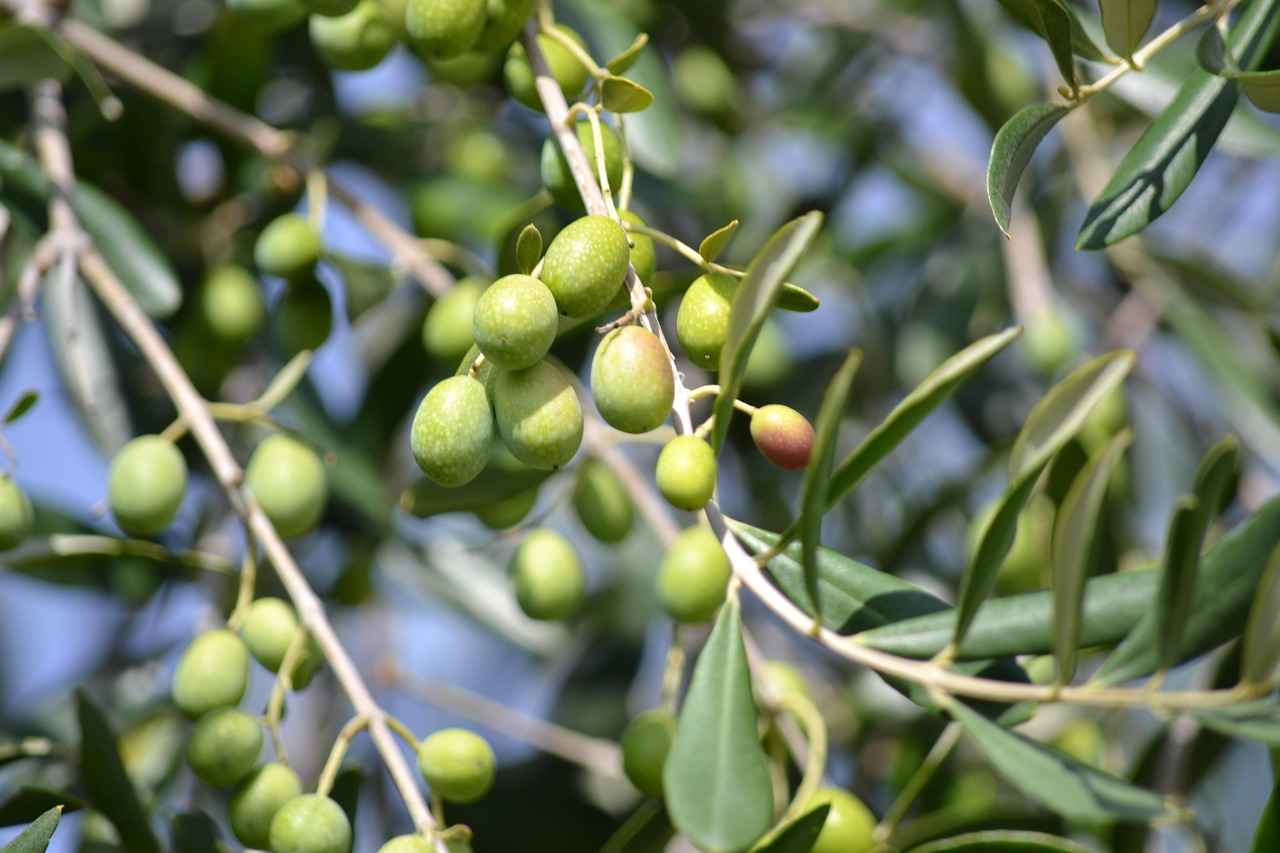
Mechanisms of Action Against Viruses
Understanding the mechanisms of action of olive leaf extract at a molecular level is vital for appreciating its potential as an antiviral agent. This section focuses on how the active compounds in olive leaf extract interact with viruses, offering insights into their efficacy and biological effects.
Active Compounds in Olive Leaf Extract
The primary active compound in olive leaf extract is oleuropein. This phenolic compound exhibits significant antiviral properties by interfering with various stages of viral infection. Research has shown that oleuropein can disrupt the ability of viruses to attach to host cells, thereby preventing the initial stages of infection.
Inhibition of Viral Replication
Studies indicate that olive leaf extract may inhibit viral replication. By targeting specific viral enzymes, oleuropein and other compounds in the extract can effectively disrupt the viral life cycle. This disruption reduces the overall viral load in the body, potentially alleviating the severity of infections.
Immune System Modulation
Another critical mechanism is the modulation of the immune response. Olive leaf extract has been shown to enhance the activity of immune cells, such as macrophages and lymphocytes. This boost in immune function can help the body respond more effectively to viral infections, providing an additional layer of defense.
Antioxidant Effects
The antioxidant properties of olive leaf extract also play a role in its antiviral efficacy. By reducing oxidative stress, these antioxidants protect cells from damage caused by viral infections. This protective effect can help maintain cellular integrity and support overall health during viral assaults.
Conclusion
In summary, the antiviral mechanisms of olive leaf extract are multifaceted, involving the inhibition of viral attachment and replication, immune system enhancement, and antioxidant protection. As research continues, the understanding of these mechanisms will further elucidate the potential of olive leaf extract as a natural antiviral therapy.
Key Active Compounds
Key Active Compounds in Olive Leaf Extract
Olive leaf extract is gaining recognition for its potential health benefits, particularly its antiviral properties. At the core of these benefits lies the primary active compound known as oleuropein. This natural phenolic compound is primarily responsible for the extract’s therapeutic effects.
Research has demonstrated that oleuropein exhibits a range of biological activities, including antiviral, antioxidant, and anti-inflammatory properties. Its antiviral effects are particularly noteworthy, as they suggest a potential role in combating various viral infections.
- Antiviral Mechanism: Oleuropein has been shown to interfere with the viral replication process. By disrupting the life cycle of viruses, it may help reduce the severity and duration of infections.
- Inhibition of Viral Entry: Studies indicate that oleuropein can inhibit the entry of viruses into host cells, thereby preventing the spread of infection.
- Immune System Support: In addition to its direct antiviral effects, oleuropein may enhance the immune response, equipping the body to better fight off infections.
Furthermore, olive leaf extract contains other beneficial compounds, such as hydroxytyrosol and oleic acid, which contribute to its overall health benefits. Hydroxytyrosol, in particular, is known for its strong antioxidant properties, which help protect cells from oxidative stress.
In summary, the key active compounds in olive leaf extract, especially oleuropein, play a significant role in its antiviral properties. Continued research into these compounds may uncover further applications in health and wellness, making olive leaf extract a promising natural remedy for various viral infections.
Impact on Viral Replication
Research suggests that olive leaf extract may play a significant role in inhibiting viral replication, which is crucial in managing viral infections. The extract contains several bioactive compounds, with oleuropein being the most prominent. This compound has demonstrated the ability to interfere with the viral life cycle at multiple stages, potentially leading to a reduction in the severity of infections.
When a virus enters a host cell, it hijacks the cellular machinery to replicate itself. Olive leaf extract appears to disrupt this process. Studies indicate that oleuropein can inhibit the attachment of viruses to host cells, effectively preventing them from entering and starting their replication cycle. By blocking this initial step, the extract may significantly reduce the viral load in the body.
Moreover, once the virus has entered a cell, olive leaf extract may interfere with the replication process itself. It has been shown to affect the viral RNA synthesis, which is vital for the production of new viral particles. This disruption not only limits the spread of the virus within the host but also aids in the body’s immune response, allowing it to clear the infection more effectively.
Additionally, the antioxidant properties of olive leaf extract contribute to its antiviral effects. By reducing oxidative stress, it helps maintain the integrity of the immune system, enabling a stronger response against viral threats. The combination of these mechanisms highlights the potential of olive leaf extract as a natural therapeutic option for managing viral infections.
In conclusion, the ability of olive leaf extract to inhibit viral replication underscores its importance in antiviral therapy. As research continues to evolve, it may provide a complementary approach to conventional treatments, enhancing overall health and wellness.
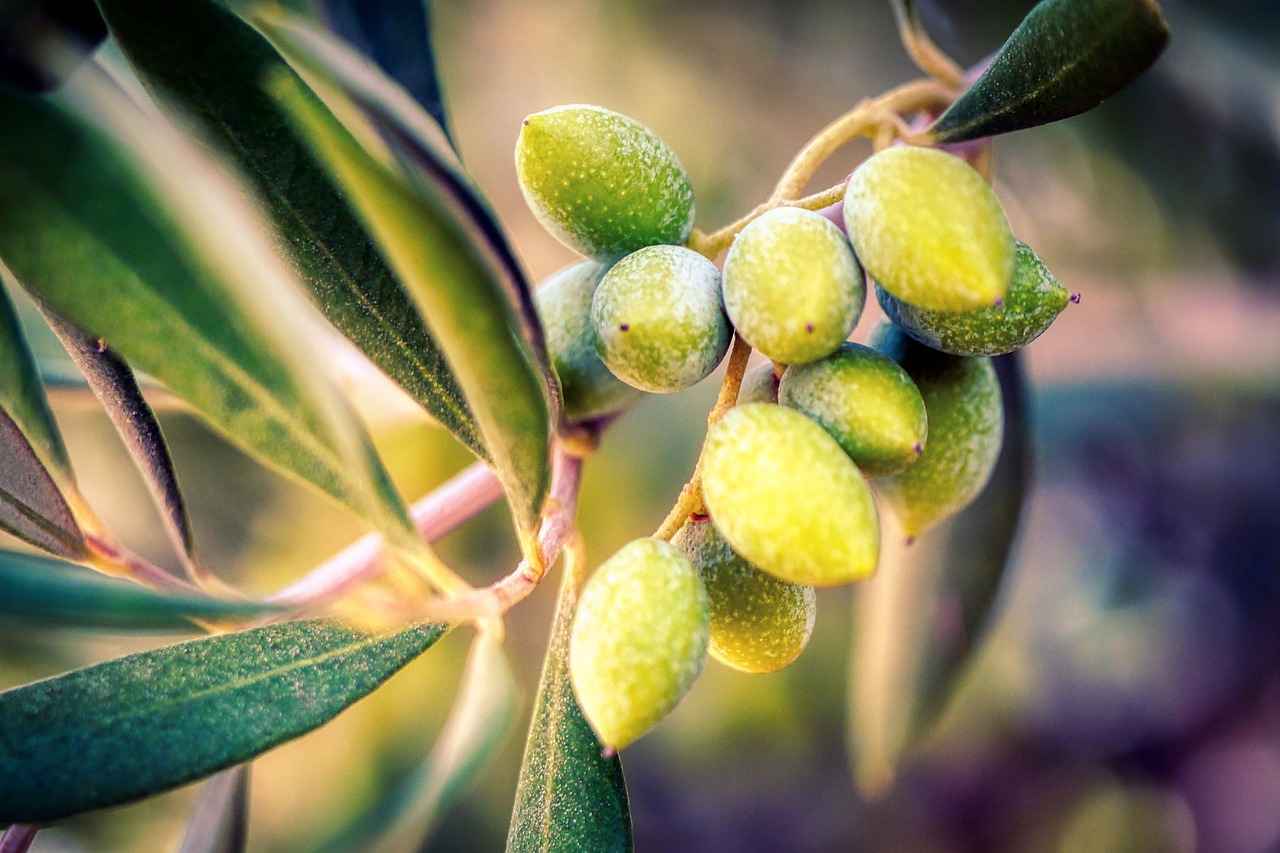
Health Benefits Beyond Antiviral Properties
When considering natural supplements for health, olive leaf extract stands out due to its diverse health benefits beyond just its antiviral properties. This article explores these additional advantages, emphasizing why incorporating olive leaf extract into a wellness routine can be beneficial.
Olive leaf extract is not only recognized for its ability to combat viruses but also for its wide array of health benefits. These benefits contribute to overall well-being and can play a significant role in preventive health care.
One of the most notable advantages of olive leaf extract is its high concentration of antioxidants. Antioxidants are vital for protecting the body from oxidative stress, which can lead to chronic diseases. By neutralizing free radicals, olive leaf extract helps to:
- Reduce the risk of heart disease
- Lower inflammation
- Enhance skin health
The anti-inflammatory properties of olive leaf extract are another key benefit. Chronic inflammation is linked to various health issues, including arthritis and cardiovascular diseases. By incorporating olive leaf extract, individuals may experience:
- Decreased joint pain
- Improved mobility
- Better management of inflammatory conditions
Research suggests that olive leaf extract can positively impact heart health by:
- Lowering blood pressure
- Improving cholesterol levels
- Enhancing blood vessel function
In addition to its antiviral properties, olive leaf extract may enhance the immune system. Its natural compounds can help strengthen the body’s defenses against various pathogens, ensuring better overall health.
In conclusion, the health benefits of olive leaf extract extend far beyond its antiviral effects. By integrating this powerful extract into a daily routine, individuals can harness its antioxidant, anti-inflammatory, and cardiovascular benefits, contributing to a holistic approach to wellness.
Antioxidant Properties
Olive leaf extract is renowned for its rich content of antioxidants, which play a crucial role in maintaining overall health and preventing various diseases. Antioxidants are substances that help neutralize free radicals in the body, thereby reducing oxidative stress. This section explores the significance of antioxidants and their impact on health.
Oxidative stress occurs when there is an imbalance between free radicals and antioxidants in the body. This imbalance can lead to cellular damage, contributing to the development of chronic diseases such as heart disease, diabetes, and cancer. By incorporating antioxidants into our diets, we can help mitigate these risks.
- Protection Against Chronic Diseases: Antioxidants in olive leaf extract, such as oleuropein and hydroxytyrosol, have been linked to a lower risk of chronic diseases. These compounds help protect cells from damage, supporting long-term health.
- Immune System Support: Antioxidants bolster the immune system, enhancing the body’s ability to fight off infections and diseases. This is particularly important in today’s environment, where maintaining a strong immune response is vital.
- Skin Health: The antioxidant properties of olive leaf extract can also benefit skin health. By combating oxidative stress, these compounds may help prevent premature aging and support overall skin vitality.
Furthermore, antioxidants are essential in reducing inflammation, which is often linked to a variety of health conditions. By incorporating olive leaf extract into your daily routine, you can harness its powerful antioxidant properties, promoting a healthier lifestyle.
In conclusion, the of olive leaf extract are not only significant for disease prevention but also for enhancing overall well-being. As research continues to unfold, the potential health benefits of this natural extract may prove to be indispensable in our quest for optimal health.
Anti-Inflammatory Effects
Olive leaf extract is increasingly recognized for its anti-inflammatory properties, which play a significant role in promoting overall health and wellness. The extract, derived from the leaves of the olive tree, contains several bioactive compounds, including oleuropein, that contribute to its therapeutic effects. By understanding these properties, we can appreciate how olive leaf extract may assist in managing various chronic inflammatory conditions.
Chronic inflammation is linked to numerous health issues, such as heart disease, diabetes, and arthritis. The anti-inflammatory effects of olive leaf extract can help mitigate these conditions by reducing inflammation at the cellular level. Research indicates that the active compounds in olive leaf extract can inhibit the production of pro-inflammatory cytokines, which are proteins that promote inflammation in the body.
- Mechanism of Action: The compounds in olive leaf extract, particularly oleuropein, work by suppressing the activation of nuclear factor kappa B (NF-kB), a key regulator of inflammation.
- Reduction of Oxidative Stress: Olive leaf extract also combats oxidative stress, which can exacerbate inflammation. By neutralizing free radicals, it helps maintain cellular health.
- Support for Joint Health: Many individuals suffering from conditions like arthritis may find relief through the regular use of olive leaf extract, as it can help reduce joint pain and swelling.
Incorporating olive leaf extract into a daily health regimen may provide substantial benefits for those dealing with chronic inflammation. Available in various forms such as capsules, tinctures, and teas, it offers a versatile option for users seeking natural remedies.
In conclusion, the of olive leaf extract highlight its potential as a natural therapeutic agent. By reducing inflammation and oxidative stress, this extract could be a valuable addition to the health strategies of those managing chronic inflammatory conditions.

How to Use Olive Leaf Extract
Incorporating olive leaf extract into your health regimen can be highly beneficial. This section provides practical advice on dosages and forms available for consumption, ensuring that you can make the most of this natural remedy.
Olive leaf extract is available in several forms, each offering unique advantages. Below are some of the most common forms:
- Capsules: These are one of the most popular forms, offering a convenient way to consume olive leaf extract. Capsules are easy to take and provide a standardized dosage.
- Tinctures: Liquid extracts, or tinctures, are another effective option. They can be added to water or juice, making them a versatile choice for those who prefer not to swallow pills.
- Powder: Olive leaf extract in powdered form can be mixed into smoothies or other foods. This form allows for flexible dosing and can be easily incorporated into your daily meals.
- Tea: Dried olive leaves can be brewed into a tea. This method not only offers the benefits of the extract but also provides a soothing and enjoyable beverage.
Recommended Dosages
Understanding the appropriate dosages is crucial for safety and efficacy. Here are some general guidelines based on current research:
- For capsules, a typical dosage ranges from 500 mg to 1000 mg per day.
- For tinctures, a common recommendation is 1 to 2 teaspoons, taken 1 to 3 times daily.
- If using powder, approximately 1 to 2 teaspoons mixed into food or drinks is advisable.
- For tea, steeping 1 to 2 teaspoons of dried leaves in hot water for 10-15 minutes is suggested.
It is essential to consult with a healthcare professional before starting any new supplement regimen, especially if you have existing health conditions or are taking medications. This ensures that you use olive leaf extract safely and effectively.
In summary, incorporating olive leaf extract can be a valuable addition to your health routine. By understanding the various forms and recommended dosages, you can maximize its potential benefits.
Supplement Forms
Supplement Forms of Olive Leaf Extract
When considering the incorporation of olive leaf extract into your wellness routine, it’s essential to understand the different available. Each form has its unique advantages and disadvantages that can influence your choice based on personal preferences and health goals. Below, we explore the two most common forms: capsules and tinctures.
| Form | Pros | Cons |
|---|---|---|
| Capsules |
|
|
| Tinctures |
|
|
In summary, both capsules and tinctures offer unique benefits for users seeking the health advantages of olive leaf extract. Your choice may depend on factors such as personal preference, desired absorption rate, and convenience. It’s always recommended to consult with a healthcare professional before starting any new supplement regimen to ensure it’s suitable for your individual health needs.
Recommended Dosages
Understanding the appropriate dosages of olive leaf extract is crucial for ensuring both safety and efficacy. This section provides comprehensive guidelines based on current research to help users make informed decisions regarding the use of this powerful natural supplement.
Olive leaf extract, primarily known for its active compound oleuropein, can vary in concentration depending on the product and form. Therefore, it is essential to follow recommended dosages to maximize benefits while minimizing potential side effects.
- General Guidelines: Most studies suggest a dosage range of 500 mg to 1000 mg of olive leaf extract per day. This is often divided into two or three doses throughout the day.
- For Antiviral Benefits: To harness its antiviral properties, a daily intake of 1000 mg is commonly recommended, particularly during cold and flu seasons.
- Capsules vs. Tinctures: Capsules typically contain a standardized amount of oleuropein, making it easier to measure dosage. Tinctures may require higher volumes for equivalent effects, so users should consult product labels.
Consultation with Healthcare Providers: It is advisable for individuals to consult with a healthcare professional before starting any new supplement regimen, especially if they have pre-existing health conditions or are on medication. This ensures that the chosen dosage is appropriate for their specific health needs.
Monitoring Effects: Users should monitor their body’s response to olive leaf extract. If any adverse reactions occur, it may be necessary to adjust the dosage or discontinue use. Common side effects include mild digestive upset or headache, which can often be mitigated by taking the supplement with food.
In conclusion, understanding the recommended dosages of olive leaf extract is essential for maximizing its health benefits while minimizing risks. By adhering to these guidelines and consulting with healthcare professionals, users can safely incorporate this powerful extract into their wellness routine.
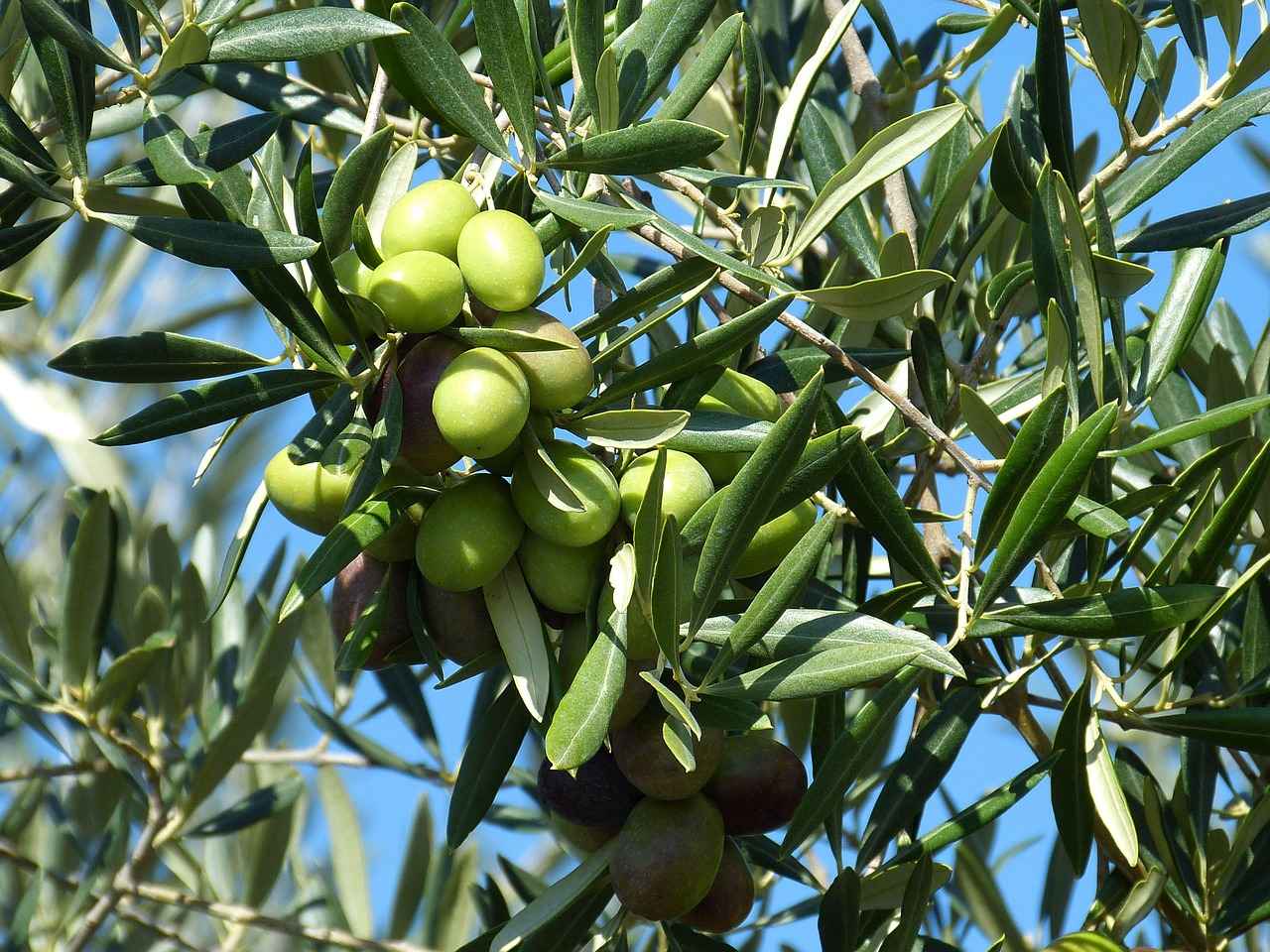
Potential Side Effects and Considerations
While olive leaf extract is widely regarded as a safe and beneficial supplement, it is essential to acknowledge the possibility of side effects and interactions with other medications. Understanding these factors is crucial for responsible usage and maximizing the extract’s health benefits.
| Common Side Effects | Description |
|---|---|
| Nausea | Some users may experience mild nausea, especially when taking higher doses. |
| Headache | Headaches can occur in some individuals, possibly due to the extract’s effects on blood pressure. |
| Dizziness | Feeling lightheaded may happen, particularly if the extract lowers blood pressure. |
| Allergic Reactions | Though rare, some may experience allergic reactions, including skin rashes or itching. |
It is advisable to start with a lower dosage of olive leaf extract to assess tolerance before gradually increasing the amount. Additionally, individuals with pre-existing health conditions or those who are pregnant or breastfeeding should consult a healthcare professional before incorporating this supplement into their regimen.
Interactions with Medications
Olive leaf extract may interact with certain medications, particularly those that affect blood pressure or blood sugar levels. Here are some key considerations:
- Antihypertensive medications: Olive leaf extract may enhance the effects of these drugs, leading to excessively low blood pressure.
- Antidiabetic drugs: The extract may lower blood sugar levels, which could result in hypoglycemia when combined with diabetes medications.
- Blood thinners: Caution is advised as olive leaf extract may have mild anticoagulant effects.
To ensure safe usage, individuals taking any of the aforementioned medications should consult their healthcare provider prior to starting olive leaf extract.
In conclusion, while olive leaf extract offers numerous health benefits, it is vital to be aware of potential side effects and interactions. Responsible use, informed by consultation with healthcare professionals, can help maximize its positive effects while minimizing risks.
Common Side Effects
While olive leaf extract is generally considered safe for most users, some individuals may experience mild side effects. It is important to recognize these reactions to ensure a positive experience with this supplement. This section outlines common side effects associated with olive leaf extract and provides guidance on what to watch for during its use.
- Gastrointestinal Distress: Some users report experiencing mild digestive issues, such as nausea, diarrhea, or an upset stomach. These symptoms are often temporary and may subside as the body adjusts to the supplement.
- Headaches: A small number of individuals may experience headaches after taking olive leaf extract. Staying hydrated and monitoring dosage can help alleviate this issue.
- Fatigue: Occasionally, users may feel an increase in fatigue or drowsiness. This can vary based on individual sensitivity and the dosage taken.
- Skin Reactions: Although rare, some people may develop mild skin rashes or allergic reactions. If this occurs, it is advisable to discontinue use and consult a healthcare professional.
Monitoring Your Response
It is essential for users to monitor their body’s response when starting olive leaf extract. Keeping a journal of any side effects can assist in identifying patterns and determining whether to continue or adjust the dosage. If severe reactions occur, it is crucial to seek medical advice promptly.
Consultation with Healthcare Professionals
Before incorporating olive leaf extract into your health regimen, consider discussing it with a healthcare provider, especially if you have pre-existing conditions or are taking other medications. This proactive approach can help prevent potential interactions and ensure safe use.
Interactions with Medications
Olive leaf extract, derived from the leaves of the olive tree, has gained popularity for its numerous health benefits, particularly its potential antiviral properties. However, it is crucial to understand that this natural remedy may interact with certain medications, which can lead to unexpected side effects or reduced efficacy of conventional treatments. This section aims to provide a comprehensive overview of these interactions, ensuring that users can make informed decisions regarding the use of olive leaf extract.
What Medications May Interact with Olive Leaf Extract?
- Antihypertensive Medications: Olive leaf extract has been shown to have a blood pressure-lowering effect. When combined with antihypertensive drugs, it may lead to hypotension, or excessively low blood pressure.
- Anticoagulants: The extract may enhance the effects of blood thinners, increasing the risk of bleeding. Individuals on medications such as warfarin should consult with a healthcare provider before using olive leaf extract.
- Diabetes Medications: Olive leaf extract can lower blood sugar levels. For those taking medications for diabetes, it may lead to hypoglycemia if not monitored properly.
- Immunosuppressants: Given its potential to stimulate the immune system, olive leaf extract may interfere with the effectiveness of immunosuppressive drugs.
Why Understanding These Interactions is Essential
For anyone considering the use of olive leaf extract alongside conventional treatments, awareness of these interactions is essential. Consulting with a healthcare professional can help mitigate risks and ensure safe and effective use. Furthermore, understanding how olive leaf extract interacts with medications can enhance its benefits while minimizing potential adverse effects.
Conclusion
In summary, while olive leaf extract offers various health benefits, including antiviral properties, it is vital to recognize its potential interactions with medications. Users should prioritize open communication with healthcare providers to navigate these interactions effectively.
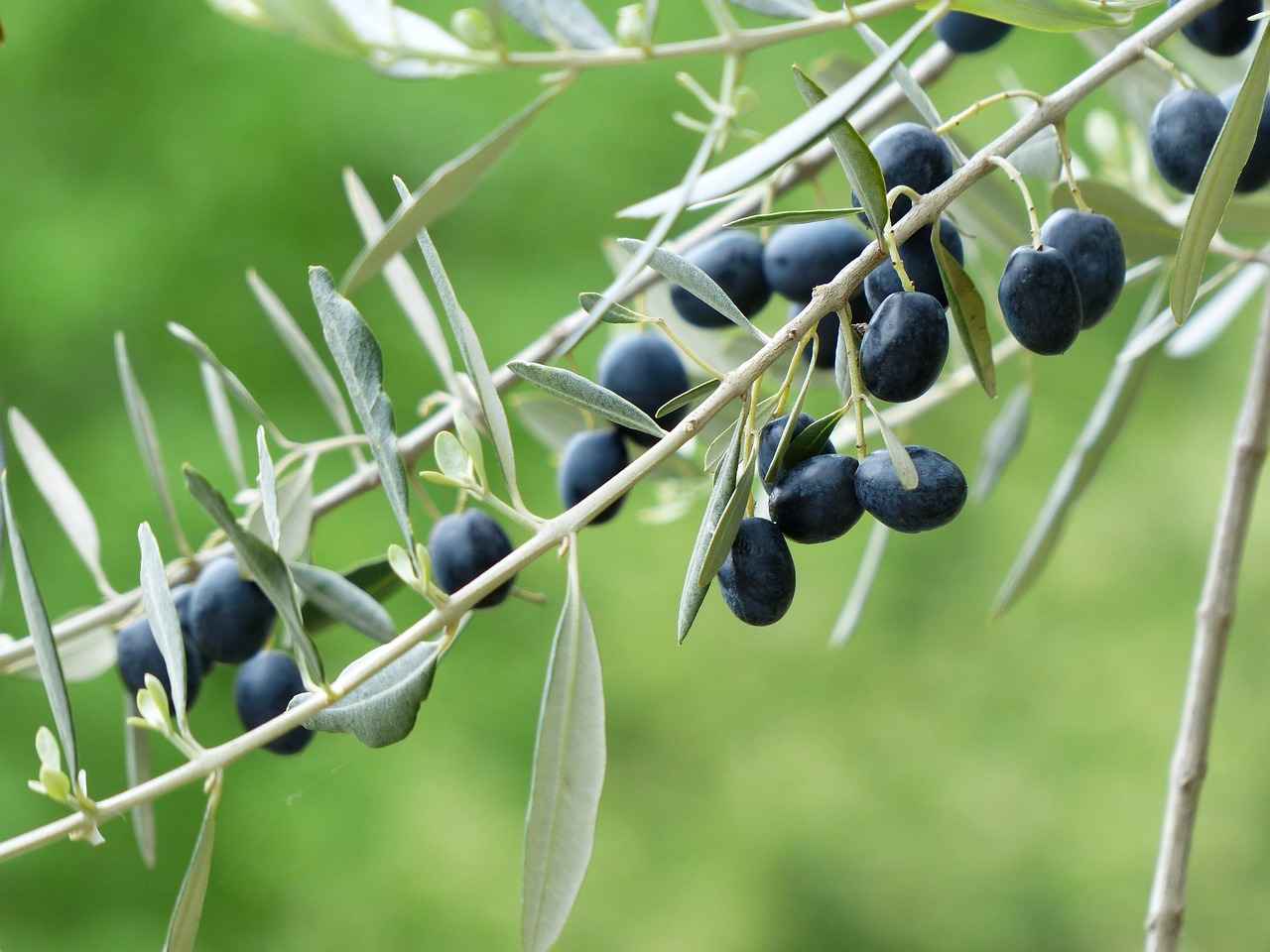
Conclusion: The Future of Olive Leaf Extract in Antiviral Therapy
As research continues to unveil the benefits of olive leaf extract, its role in antiviral therapy may expand significantly. This natural remedy, derived from the leaves of the olive tree, has been recognized for its potential health benefits for centuries. The increasing interest in its antiviral properties highlights the need for further studies to fully understand its mechanisms and applications in modern medicine.
Recent scientific investigations have indicated that olive leaf extract contains key active compounds, particularly oleuropein, which exhibit notable antiviral effects. These compounds may work by inhibiting viral replication, thus reducing the severity and duration of infections. This mechanism of action is crucial, as it opens the door to new therapeutic strategies in combating viral diseases.
Moreover, the historical use of olive leaf extract in traditional medicine underscores its long-standing reputation as a natural remedy. Cultures around the world have utilized this extract for various ailments, including viral infections, which adds to its credibility as a potential therapeutic agent.
While preliminary findings are promising, it is essential to approach the use of olive leaf extract with caution. Ongoing research is necessary to determine optimal dosages, potential side effects, and interactions with other medications. As the scientific community continues to explore the full spectrum of benefits offered by olive leaf extract, it may soon become a staple in integrative medicine, providing a natural alternative for those seeking to enhance their health.
In conclusion, the potential applications of olive leaf extract in antiviral therapy are vast, warranting further exploration. As more studies are conducted, we may witness a significant shift in how this ancient remedy is utilized in contemporary healthcare practices.






